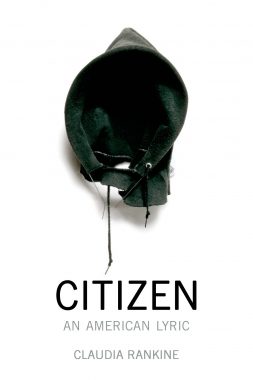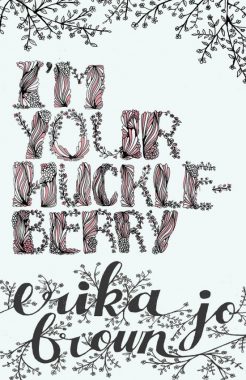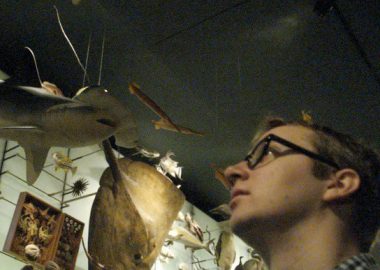I’ve been having a weird one with poetry recently. Everything I seem to read has too many breathy words like “whisper” or “satin” in them, or making heavy handed comparisons between the body and nature, or they’re peppered with obscure words from very much dead languages, or, you know, I just don’t like it. In a way, I felt like I’ve been reading a lot of poems that make people not like poetry, sitting at my computer murmuring to myself, “c’mon guys, stop being so… poet-y.”
So when I stumbled upon Sasha Fletcher’s poem “a report from the settlers on their progress,” I admit, I felt a little relieved. I’m not saying nobody is doing what Fletcher is doing, but it has just the right touch of simplicity and irreverence that makes me believe it.
Once I walked for miles on end
and told myself several stories
as a means of getting around a large river,
just standing there in the middle of the road.
I tried asking it to move, but that didn’t work
so I tried something else. I recalled
when all my rivers were rivers
and broke like bones over rocks.
I practiced patience and understanding
and then I hit it with a rock.
That river is still standing here
in the middle of the goddam road
so now everyday I have to ford that river
to find the payphone I use
to say meet me here at dawn
to say that maybe rivers
were not what we thought they were
and to report on all the things I have not done.
I have not memorized the books of the bible
nor the capitals of the states
and I could not spell Monongahela
without looking it up in a book.
And all the books have been set on fire
and thrown in the ocean
where, screaming, they drowned.
After that is anybody’s guess these days.
After that I lay myself down in a field of green grass.
I tell myself a story about rivers.
In this story there are no rivers.
In this story we all have great jobs
and health insurance and we get to bed on time.
We have kept our drinking in check
and eat well-balanced diets. This story
is just a story, though. I am lying
face down in a stubborn river. I can feel it
with my mouth, which is full of trouble,
all the way down to my bones
which are just laughing at all of this
just rolling around on the ground and once
I walked for miles on end only to end up
face down in a river. If this story
appeals to you, I ask that you come on down to the river
and carry me home.
Ah, relief.
Perhaps the reason I like this work is because it has a timely yet enduring quality to it both in content and form. The piece centers its attention on the appearance of rivers as obstacles (as Fletcher reveals somewhat starkly near the end) such as maintaining an appropriate diet and getting ahold of today’s ever elusive “great jobs.” This isn’t to say a poem has to name drop Obama-care or The Great Recession to be relevent, but we also shouldn’t act like our greater social issues aren’t worthy of poetry because they are obvious problems for someone to have. Using these basic problems works because of what precedes it: the exhausted daydreaming of a time when these problems didn’t exist. It would be easy enough for Fletcher to shovel blame on presidential administrations or other social institutions here, but here the emphasis is on the daily fatigue brought on by an absence of hope. Sometimes, all we’re left to do is lay in the grass and let our minds create something else to soften the blow, to escape temporarily from existential threats.
And, to me, the ranting form of the piece makes the fatigue feel all the more human and believable. Sure, there is a place for the delicately placed syllable or the deluge of vivid imagery, but the imprecise nature of a rant along with the breathless pace that goes with it makes me feel like I’m hearing someone speak who is also trying to make sense of their visions as they share them. It’s a nice effect, and it hit me like a bucket of water.
“a report from the settlers on their progress” was originally published in notnostrums 6 at http://www.notnostrums.com/Fletcher.html and republished on BrooklynPoets.org where I found it. The image is from soundlitmag.wordpress.com.




